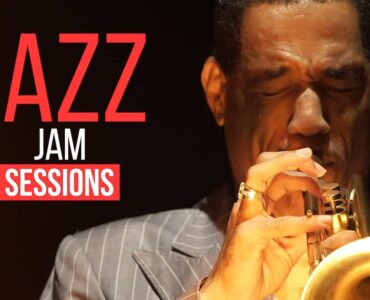Having a good ear is an undeniable aid to to musical success. A good musician will be able to identify notes, chords and different rhythms, aiding in everything, from transcription to composition.
Even those born with perfect pitch (which can either be a curse or a blessing!) need to practice their ear training.
Developing a good ear will also enhance songwriting, as players will find it easier to make the connection between transferring music they hear in their head to what is played on an instrument.
It’s the most important aspect of being a musician. I worked on mine by jamming along to the radio.
Last Minute Musician Andy Mack
Most contemporary musicians tend to learn their instruments by ear, through playing other people’s songs. This slowly develops a sense of pitch, which gradually improves, as the musician improves.
However, for those aspiring to move past the half empty bar on a Friday night and begin to wander into the realms of professional musicianship, it is important to be able to learn songs simply by listening to them, without the aid of tablature, chord sheets and other educational tools.
There are several techniques to use. Many musicians frequently play along whilst listening to the radio or their own personal playlists.
Beginners will find that playing and singing the root notes along with different genres of music will help develop an understanding of the song.
Trying to harmonise along with with your favourite tunes can be a great way to learn harmony. If possible, it is also great practice to work out guitar solos by ear, and understand which scales the solos use.
Simple methods to improve a musician’s ear:
Practice intervals
Practicing intervals is the way that most musicians first begin to train their ear. By learning to identify different intervals from different scales, musicians will find that, in everyday music on the radio, it will become easier single out different patterns and harmony.
Learn basic music theory
Through understanding how chords and scales are assembled will undoubtedly enhance musical ability. Musicians often argue about how much music theory you should learn, but any musician looking to improve their practical skills should try to learn at least some basic music theory.
Play simple online music games
With all things, learning should always be fun and the internet offers up a great selection of ear training games and online videos. These are perfect for those moments when a musical instrument isn’t at hand or when musicians are on the go.
Ear training is, of course, absolutely essential. Since music is all about organised sound we must be able to hear, understand and differentiate those sounds.
Guitarist, Neil Morgan
There are lots of ways of doing it; playing along with records is a great way and so is doing a bit of singing. Singing scales and arpeggios, intervals, etc. so that you’re internalising how things sound.
There are also some great mobile apps you can get to help with ear training.”
Top mobile applications for ear training
Sources
Do you have any tips on ear training? Let us know in the comments below…




















